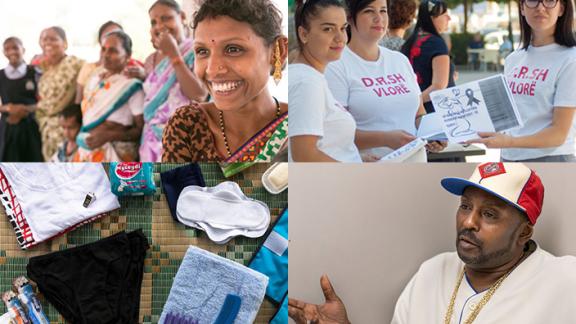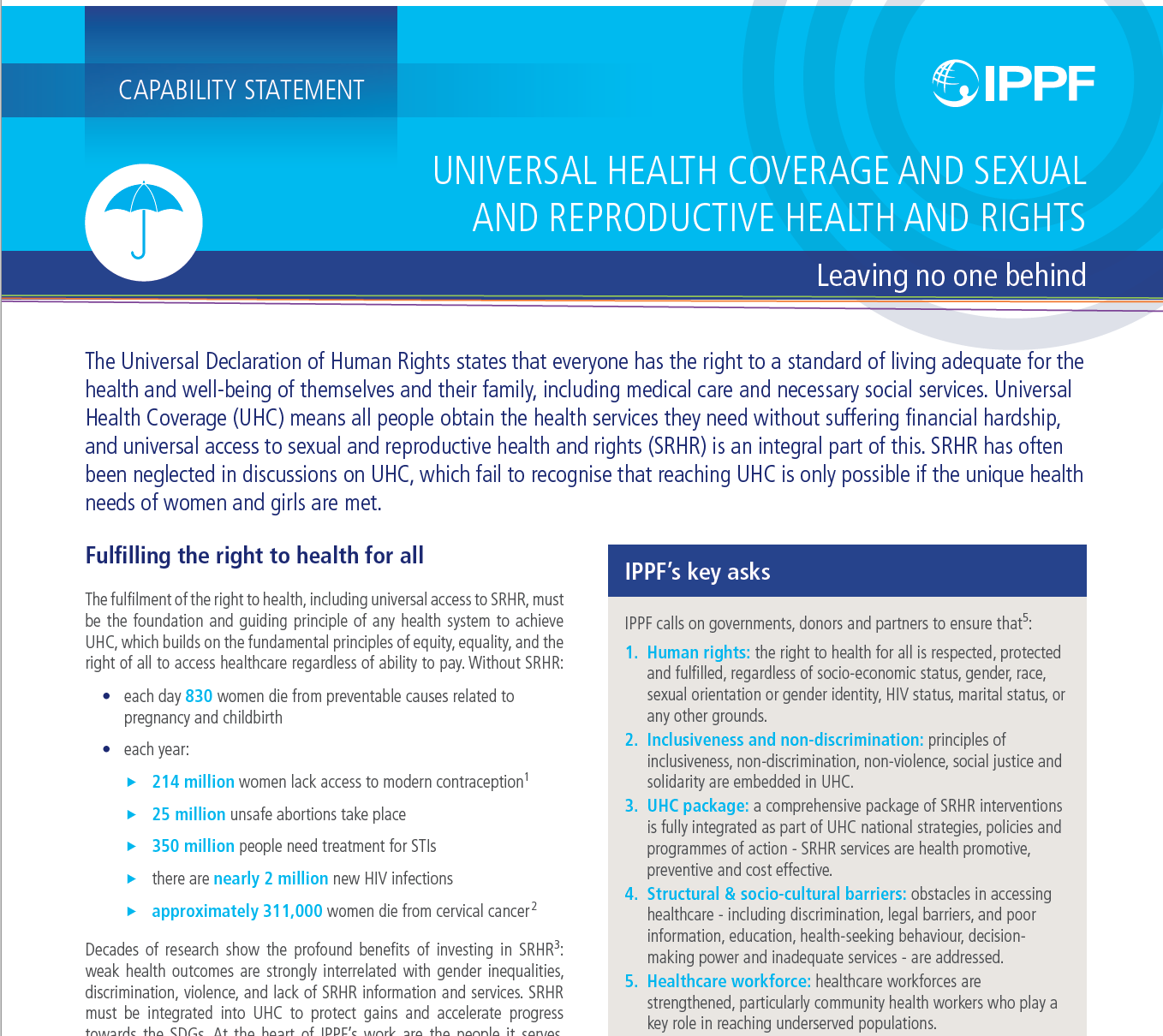IPPF welcomes the adoption of the Universal Health Coverage (UHC) political declaration in the United Nations General Assembly. We are pleased with member states’ recommitment to respect, protect and fulfil the right to health for all, without discrimination of any kind. We also congratulate governments’ unequivocal support to gender equality and urge them to invest domestic funds and to integrate sexual and reproductive health services into national UHC packages. Make no mistake, the promise of UHC by 2030 won’t be achievable if investments in women and girls’ rights and SRHR (sexual and reproductive health and rights) are not increased.
IPPF looks forward to work with Governments and other stakeholders to make the right to health, SRHR and gender equality a reality for all, in particular for women, adolescents and girls, and youth especially the ones left behind.
What is UHC?
Universal Health Coverage (UHC) means that all people can obtain basic health services when they need them, without suffering financial hardship. UHC must include addressing barriers people face when seeking healthcare services, and ensure they are available, accessible, acceptable, affordable and of high quality.
Achieving this is vital because healthy populations can better contribute socially and economically, while poor health is a major driver of poverty.
UHC has its origins in the 1948 World Health Organization Constitution, which declares health a fundamental human right, and commits to ensuring the highest attainable level of health for all.
Unfortunately, this is currently not a reality for millions of people around the world. In fact, every year more than 100 million people fall into poverty because of out-of-pocket health spending. To make matters worse, women suffer higher costs relating to sexual reproductive healthcare than men.
However, there is a way to address these issues, and this is through governments fulfilling their commitments to Sustainable Development Goals (SDGs). Over 180 states have promised to try to meet the SDGs, which are the blueprint to achieve a better and more sustainable future for all.
Ensuring sexual and reproductive health rights for all yields high returns for sustainable development and is critical to achieving true UHC. There are two SDGs that will facilitate this:
- SDG 3 – Health and Wellbeing
- SDG 5 – Gender Equality
Watch: Universal Health Coverage: a call to action
What is IPPF’s contribution to UHC?
IPPF and its Member Associations (MAs) address obstacles that limit vulnerable and marginalized populations’ access to services by challenging discrimination and advocating for policies that ensure universal access to information and services. Recognizing the financial burden of out-of-pocket healthcare expenditure, our MAs’ ‘no-refusal policy’ ensures that all clients receive services, regardless of their ability to pay.
Through our MAs, we also contribute to strengthening national health systems, such as by training government healthcare workers and supplying contraceptive commodities. IPPF is committed to tackling the social determinants of health and upholding the sexual and reproductive rights of the vulnerable and marginalized.
when
Subject
Gender equality














